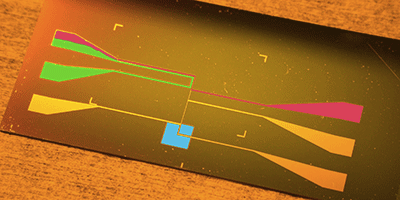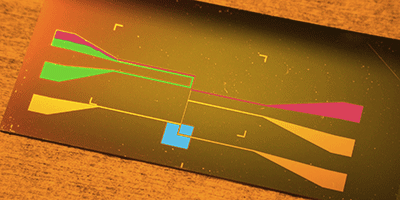A Shield for Rydberg Atoms
A Rydberg atom has its outermost electron in a highly excited orbit and, therefore, a large electric dipole moment—a property that could be used to transfer qubit states between elements in a quantum circuit. But a known problem with housing the atoms in practical circuit hardware such as a microchip is posed by electric fields, which quickly build up on the chip surface and interfere with the atoms’ quantum states. A potential cure for this problem has now been demonstrated by Michel Brune at the Kastler-Brossel Laboratory, France, and his colleagues. They show that coating chips with a thin metal layer increases the atoms’ coherence times by a factor of .
The group used a combination of lasers and magnetic trapping to position a cloud of rubidium atoms within a few hundred micrometers of a chip’s surface and cool the atoms to microkelvin temperatures. Normally, this process leaves stray rubidium atoms that stick to the surface and generate a fluctuating dipole field, limiting the coherence time of Rydberg qubits in the cloud to microseconds. But the authors found that a thin rubidium metal coating on the chip adsorbs the stray atoms and dampens the fluctuating field. On coated chips, superpositions between two Rydberg states on the same atom had coherence times of microseconds.
Rydberg atoms could, in principle, interact with certain types of solid-state qubits and the optical field of a single photon—two systems that have complementary advantages for quantum circuits but are difficult to connect. The demonstrated scheme is a step towards making this connection in a practical circuit.
This research is reported in a Rapid Communication in Physical Review A.
–Jessica Thomas





